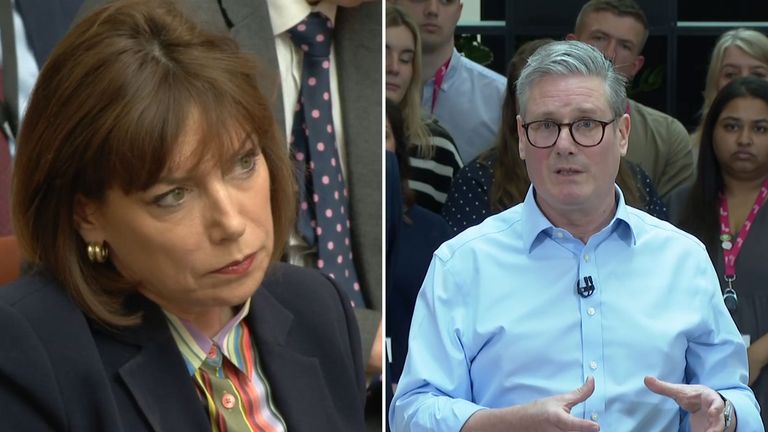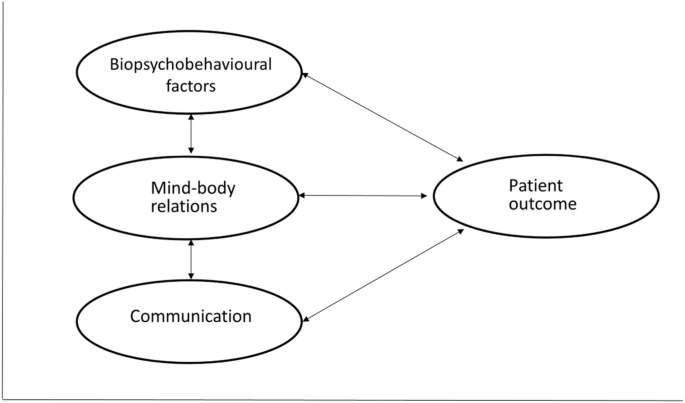NHS England to be scrapped with management of health service returning to government, Starmer says | Politics News

NHS England, the administrative body that runs the national health service, will be abolished in a bid to slash red tape, Sir Keir Starmer has announced.
The prime minister said he was axing the “arms-length body” to bring management of the NHS “back into democratic control”.
The move will see the organisation – set up in 2013 by former Tory health secretary Andrew Lansley to give the NHS greater independence and autonomy – brought back under the control of the Department of Health and Social Care (DHSC).
Politics latest:’No return to austerity,’ PM says
Sir Keir said the result would end the duplication from two organisations doing the same job, freeing up staff to focus on patients and putting more resources on the frontline.
Delivering a speech in East Yorkshire, the prime minister said: “I can’t, in all honesty, explain to the British people why they should spend their money on two layers of bureaucracy that money could and should be spent on nurses, doctors, operations and GP appointments.
“So I’m bringing management of the NHS back into democratic control by abolishing the arm’s length body, NHS England, that will put the NHS back at the heart of government where it belongs – freeing it to focus on patients, less bureaucracy, with more money for nurses.
“An NHS refocused on cutting waiting times at your hospital.”
It comes after a number of senior NHS England executives announced their intention to step down, including boss Amanda Pritchard, chief financial officer Julian Kelly, chief operating officer Emily Lawson and national medical director Sir Stephen Powis.
Sir Keir said the “tough choices” did not just stop with NHS England, as he confirmed the government would send AI teams in to every government department to boost efficiency and make savings of up to £45bn.
He described AI as a “golden opportunity” to reform the state, which he said was “weaker than it has ever been -overstretched, unfocused, trying to do too much, doing it badly, unable to deliver the security that people need”.
“The good news is technology can massively help if we push forward with digital reform of government, and we are going to do that,” he continued.
‘No return to austerity’
The prime minister rejected claims that his announcement – which comes on top of plans to slash the UK’s ballooning welfare bill and warnings of job losses in the civil service – amounted to a return of austerity championed by previous Conservative administrations.
Read more:
What is NHS England – and what does abolishing it mean?
MPs vote for major change in assisted dying bill
Asked by Sky News’ political editor Beth Rigby whether he was breaking his election pledge not to return to austerity, he replied: “There is no return to austerity. I said that to you before the election, and we’re not going to austerity.”
Turning to welfare, the prime minister defended his expected actions, saying: “We must support those that need support, but equally we must help those who want to get back into work, into work. And at the moment, the system doesn’t do that.”
‘Final nail in the coffin’
In a statement in the Commons following the prime minister’s speech, Health Secretary Wes Streeting welcomed the abolition of NHS England as the “final nail in the coffin of the Conservatives’ disastrous top-down organisation”.
He cited a report by the non-affiliated peer Lord Dazi, whose report into the health service blamed the 2012 reorganisation of the NHS for creating a “fragmented web of bureaucracy”.
He said there were now more than twice as many people working in NHS England and the DHSC today than 2010, and that health management staffing is expected to be cut 50%, saving the taxpayer “hundreds of millions of pounds”.
The Conservatives, who established NHS England, welcomed the measure to “streamline NHS management and the principle of taking direct control”.
Alex Burghart, shadow chancellor of the Duchy of Lancaster, said it meant “Labour ministers now have nowhere to hide or anyone else to blame on NHS performance”.
Jeremy Hunt, the former Tory health secretary, praised the government for the “boldness” of the decision but warned: “If the result of today is to replace bureaucratic over-centralisation with political over-centralisation, it will fail.”
‘Devastating’
The move was not universally welcomed by charities and thinktanks, including The Nuffield Trust, which said the prime minister’s announcement would be “devastating for staff at all levels of NHS England”.
Chief executive Thea Stein said that while it made “sense” to remove duplication and bureaucracy, there were still “profound problems” facing the NHS, including spiralling waiting lists and social care reform which had been “kicked into the long grass”.
“It is not immediately clear that rearranging the locus of the power at the top will make a huge and immediate difference to these issues, which ultimately will be how patients and the public judge the government,” she said.
“Furthermore, the government should be careful that this doesn’t lead to even more top-down micro-management of local services from Whitehall, which has been the bane of the health service.
“NHS England was set up to take the politics out of the NHS, but today politics has taken out NHS England.”
The abolition of NHS England is expected to take two years to complete. The government has not yet said how many jobs are expected to be lost.
link








